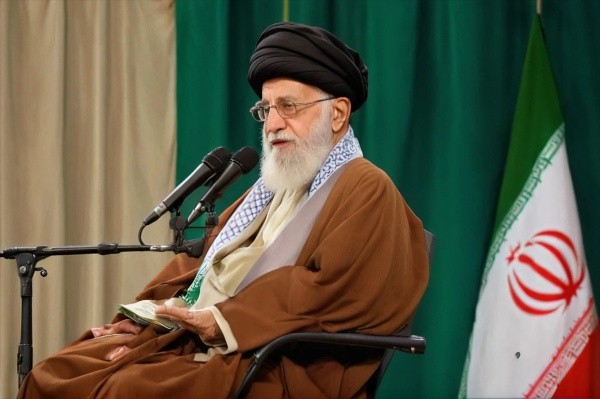Iran’s Plan to Strike Back Against the U.S.
Iran’s Military Preparations Following U.S. Attacks
Loading...

Iran's Ayatollah Khamenei raised the “suffering” of Muslims in India, Gaza and Myanmar
Diplomatic Tensions Rise Over Comments
India has officially condemned remarks made by Iran's Supreme Leader, Ayatollah Ali Khamenei, regarding the treatment of minorities in the country. The Indian Ministry of External Affairs issued a statement on Monday, labeling Khamenei's comments as "misinformed and unacceptable." The ministry emphasized that countries should reflect on their own records before commenting on the situations of minorities elsewhere.
Khamenei's comments, which highlighted the "suffering" of Muslims in India, Gaza, and Myanmar, were made in a post on the social media platform X. He called for global solidarity among Muslims, stating, "We cannot consider ourselves to be Muslims if we are oblivious to the suffering that a Muslim is enduring in #Myanmar, #Gaza, #India, or any other place." This statement has sparked significant backlash from Indian officials.
Historical Context of Khamenei's Remarks
This is not the first time Khamenei has addressed the situation of Muslims in India. In 2019, he expressed concern over the Indian government's decision to abrogate Article 370, which granted special status to Jammu and Kashmir. At that time, he stated, "We’re concerned about Muslims’ situation in #Kashmir. We have good relations with India, but we expect the Indian government to adopt a just policy towards the noble people of Kashmir and prevent the oppression & bullying of Muslims in this region." Such comments have historically strained relations between the two nations, despite their long-standing ties.
Strengthening Bilateral Relations
Despite the recent diplomatic tensions, India and Iran have been working to strengthen their bilateral relations. Recently, both countries signed a significant long-term agreement to operate the Shahid-Beheshti Port Terminal. This deal, which was witnessed by ministers from both nations, underscores the strategic importance of the Chabahar port pact. The agreement aims to enhance regional connectivity and streamline trade routes between India, Iran, and Afghanistan, providing an alternative to traditional routes that pass through Pakistan.
India and Iran share a rich history of interactions that spans over a millennium. In contemporary times, their relationship is characterized by high-level exchanges, commercial cooperation, and cultural ties. The two nations have collaborated on various projects, reflecting their mutual interests in regional stability and economic development.
Conclusion
The recent remarks by Ayatollah Khamenei have reignited discussions about the treatment of minorities in India and the broader Muslim community. While India has firmly rejected these comments, emphasizing the need for countries to focus on their own issues, the historical context of Khamenei's statements cannot be overlooked. As both nations navigate these diplomatic challenges, their ongoing collaboration in areas like trade and connectivity remains crucial for regional stability.
Editor
Iran’s Military Preparations Following U.S. Attacks
Troops remain in five strategic locations, raising fears of renewed tensions and long-term occupation.
Opposition forces have taken control of the capital after a significant offensive. Here is how it unravelled.
